The gentrification of Brixton: How did the area's character change so utterly?
In no part of London is the before-and-after effect of gentrification so marked as in Brixton, one-time teeming hub of West Indian life. Author Alex Wheatle tours the streets where he grew up and asks, what happened?
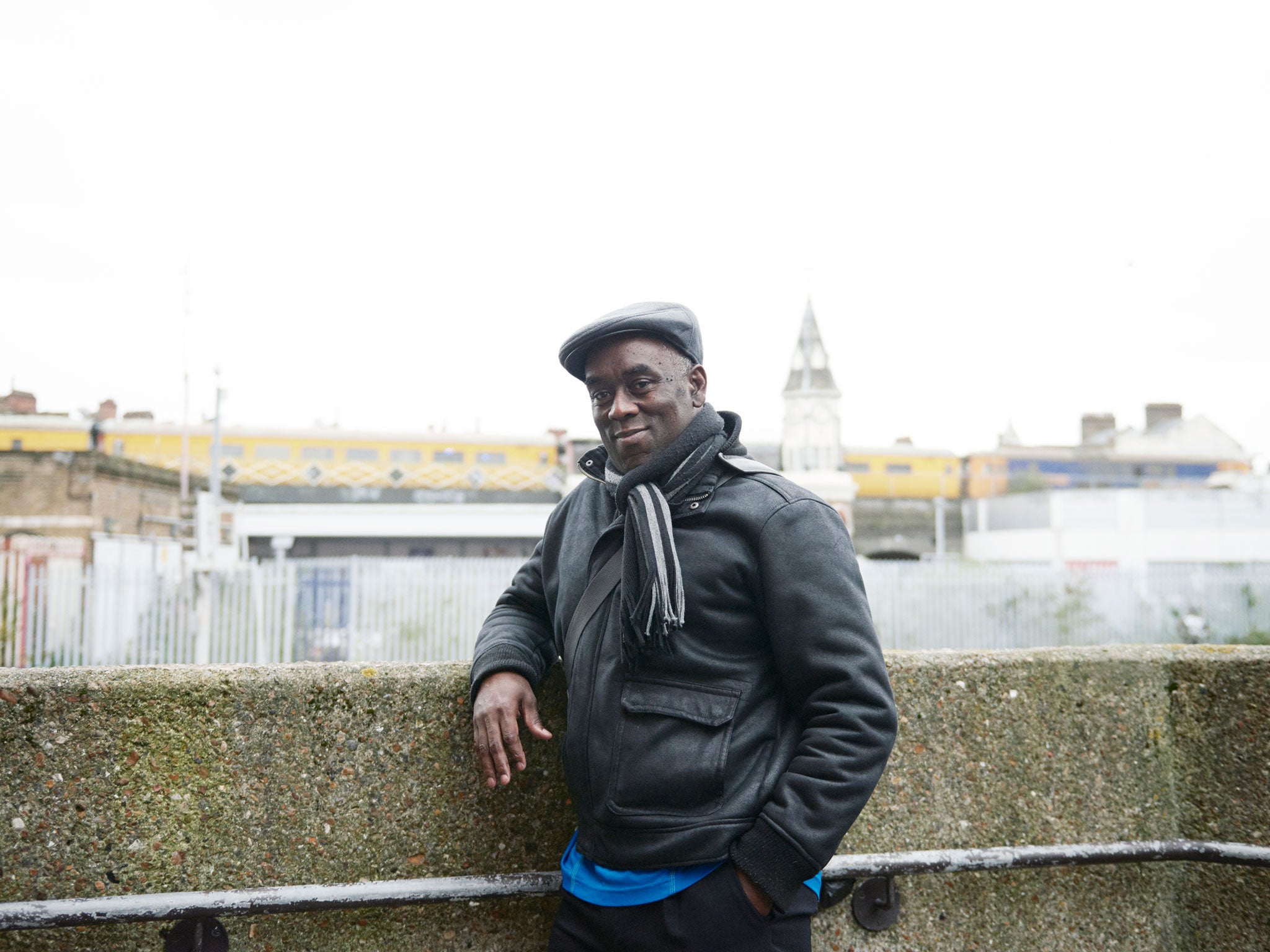
I met up with a friend recently and we lunched on the first floor of the Ritzy cinema bar in central Brixton in South London. As I placed my order, I remembered that the establishment where I was standing was the place where staff campaigned and went out on strike for a living wage.
My seat offered me a view of Windrush Square and the Town Hall building across the road. Once I finished my meal, I went down the stairs and through the ground floor dining area where clients were enjoying their Sunday lunches and fine wines. What struck me as my friend and I made our way to the exit was that among the diners, there wasn't a single face of colour to be found. Brixton has changed beyond recognition.
My mind wound back to the late 1970s and early 1980s and my Brixton youth: top-ranking sound systems carrying wardrobe-size speaker boxes into Brixton Town Hall on a Friday evening; later on the same night, just around the corner from the reggae clash, black kung fu fans practising their flying kicks outside the Ace cinema following the viewing of a Bruce Lee double bill. On a Saturday morning the many reggae record "shacks" would be performing a till-rattling trade selling vinyl straight outta Kingston, Jamaica.
In the market the aroma of spicy meat patties blended with the fresh smell of Caribbean vegetables. If you had the need to score weed, you would make your way past ramshackle terraced housing where the windows were covered by jagged corrugated sheets of metal. You would nod your greetings to the squatters who resided in those crumbling brick shells on your way to the "Frontline" – a section of Railton Road. Sometimes the sound systems would take over the unoccupied residences, masking the exposed brickwork, holes in the floorboards and smashed windows with black-painted chipboard and black dust sheets.
For power, people would plug in their own generators. Someone would be dispatched to the alcohol cash'n'carry, and by midnight the neighbourhood would be rocking to the sounds of Dennis Brown, Gregory Isaacs, Sugar Minott and other reggae greats. Patrons would pay a ratchet-wielding, broad-shouldered doorman a pound to gain entry, and they would purchase their liquor at the makeshift bar in the kitchen. Even Margaret Thatcher might have applauded the sound boys' entrepreneurial spirit.
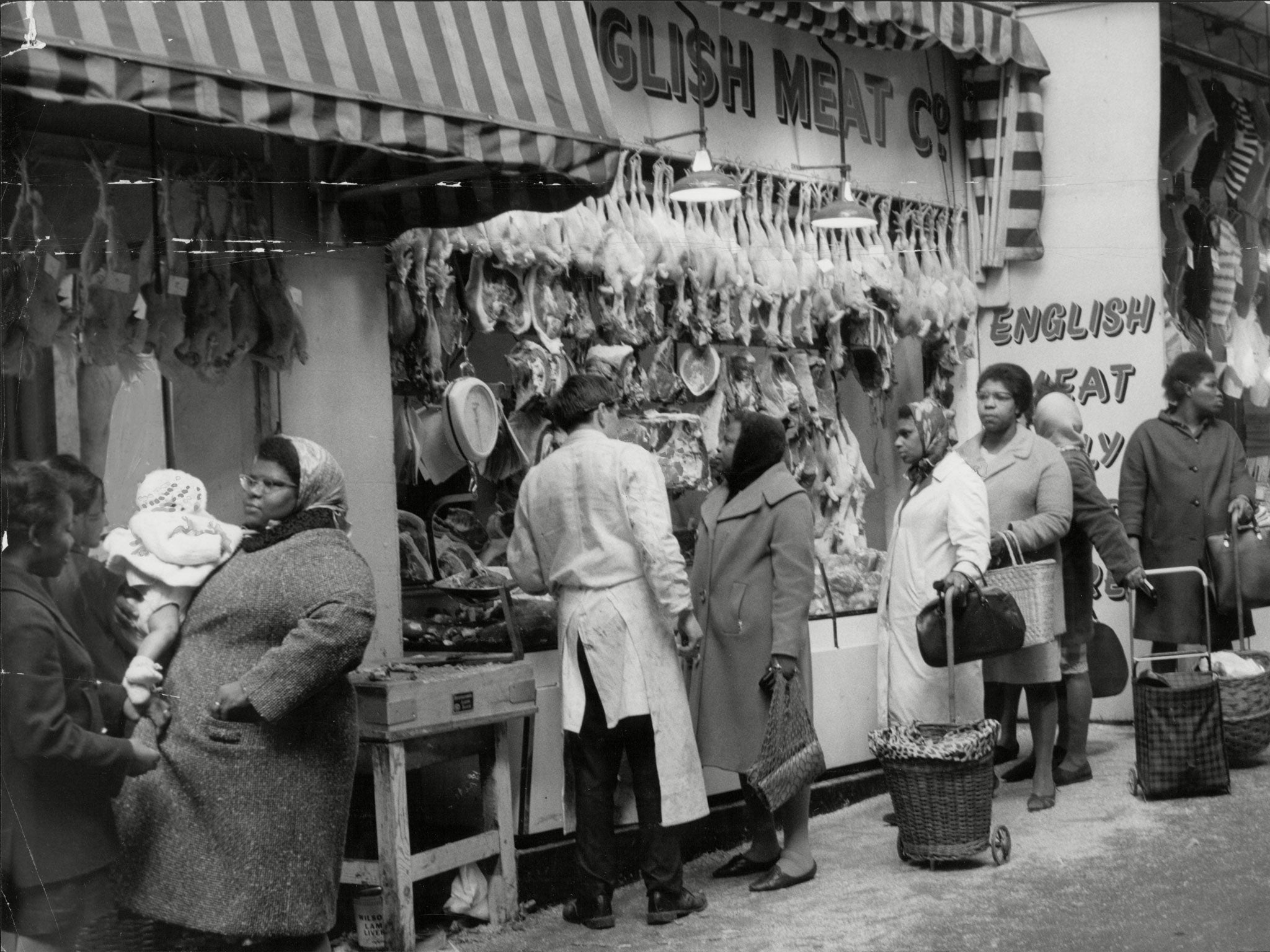
I was one of those teenage reggae-heads of that era. I lived in a social services hostel in Elm Park, Brixton Hill. Seduced by the bluesing, raving, hustling and general excitement in Brixton, I soon lost a job opportunity I had with Lambeth Construction services. I was a member of a small sound system that we named Crucial Rocker. I lived for the weekend when, dressed in our imitation silk shirts, Farah slacks and leather berets (usually bought from The Baron menswear store in Atlantic Road – untouched by the rioters in 1981), our set would entertain a "ramjam" crowd of reggae and "lovers' rock" disciples.
I began my writing career by penning jingles, "toasts" and chants for performances for our sessions: Bob Marley, Burning Spear or Yellowman had nothing to fear from me. If I didn't have a gig I'd often step to the "Frontline" and purchase a two or five-pound draw that the dealers would wrap in betting shop paper. I'd then make my way to an all-night blues dance or a house party. I had so many choices: Sir Lloyd, Frontline International, Soferno B, Studio One, Dread Diamonds, and many more.
People often talk about the police oppression and it was intense in that era. But if you loved reggae music and partying, there was no better place to be than London SW2 and SW9.
So how did this way of life establish itself in Brixton? And what's happened to my generation of black Brixtonians now that the area's character and indeed purpose has changed so utterly?
Clive Banton was born at the top end of the Frontline in 1963. His father, a multi-skilled tradesman, had arrived in the UK from Jamaica in the mid-1950s. He worked on the building sites of London, more often than not working from dawn till dusk, seven days a week. He saved what money he could in a local co-op banking system called "pardner" (early settlers from the Caribbean were often denied bank accounts). He ignored the racial taunts and insults that were daily hurled at him. Instead he nurtured a dream. By 1960, Mr Banton finally managed to put down a deposit on a house in Railton Road – it was selling for a small four-figure sum. With a great sense of achievement he sent for his wife, who patiently waited for him in Jamaica, to join him in Brixton. They had six children: three boys (one of them Clive) and three girls. As the Beatles stormed to the top of the charts and new arrivals from the Caribbean were startled by the London smog, Mr Banton rented out rooms to friends and family who needed them. Often his growing family slept in one room. Apart from raising her children, Mrs Banton still had the time to work as a cleaner in a local hospital.
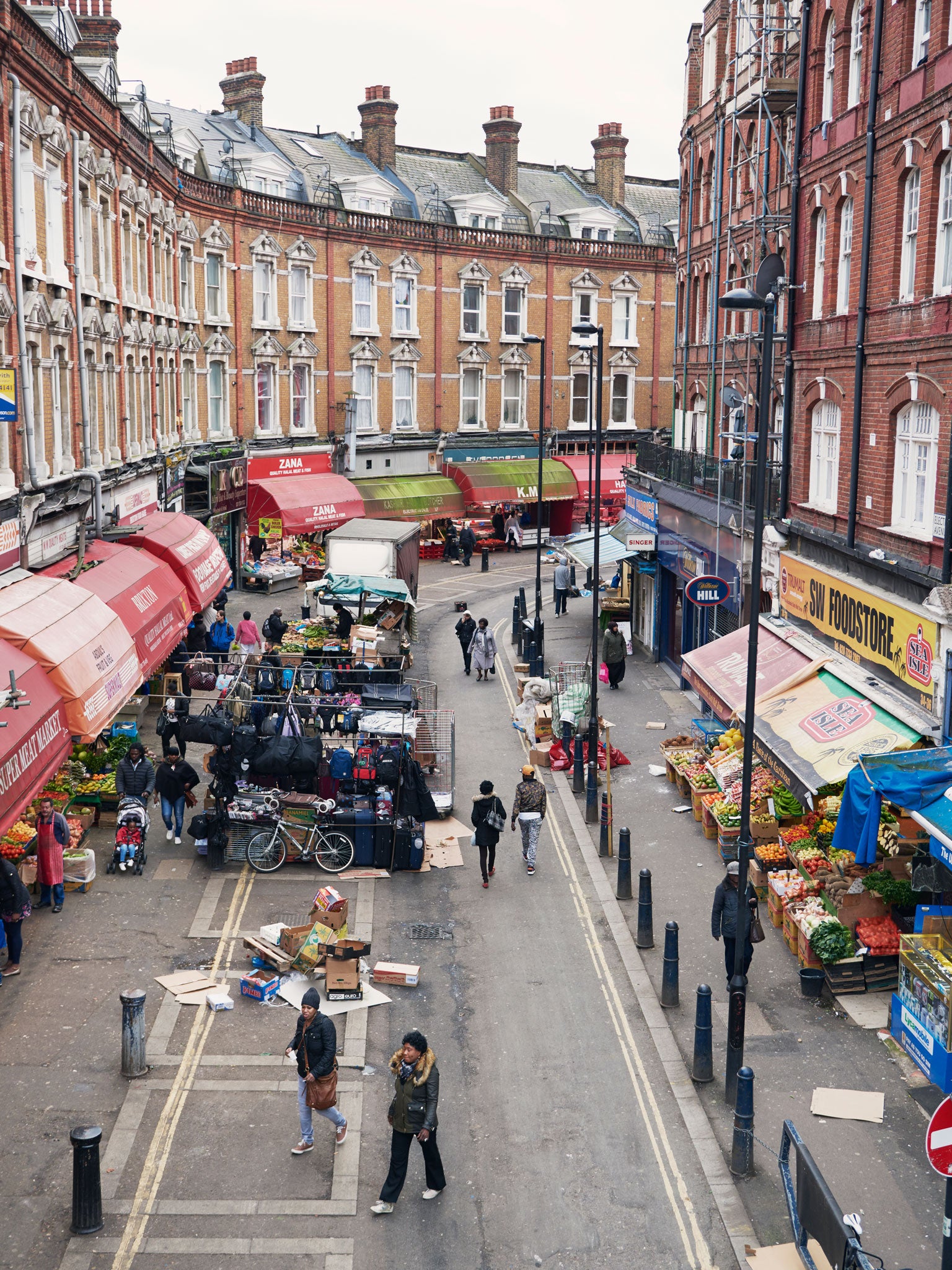
"From what I remember it was a beautiful place to grow up," Clive, now 52, recalls. "Nobody locked their front doors and as a small kid I was in and out of neighbours' houses all the time. Most West Indian people who lived at our end > of the street owned their properties. You could tell the council accommodation by their green doors." Clive attended the nearby Effra Primary School. He was warned by his mother that on his way home he should always turn right when he reached Railton Road and never turn left into "the dirty end of the street". Being an excitable, curious youngster, Clive often stepped the wrong way. He found himself walking by pimps, prostitutes, gangsters and all manner of other strange and fascinating characters.
On many occasions, Clive found himself in a gambling den late at night, observing great wads of money changing hands as the clientele bought and drained after-hours alcohol and smoked extra-long roll-ups with a funky smell. He would also sneak out late at night, sometimes in his pyjamas, to buy fried dumplings, fish fritters and sweets from one of the first 24/7 stores in south London.
One of those shops was owned by a short Jamaican man nicknamed Tumper. Clive vividly recalls the chicken wire and meshing surrounding his serving counter. "As I was growing up, no one bothered me, 'cos I was born on this road. Everyone knew my father. It might've been scary for others but it was normal for me. Racists wouldn't dare try to come and intimidate us. They knew that we could fight and stand up for ourselves. I felt much safer in that community than outside it."
Rejecting the attractions of the red light end of the street, the elder Mr Banton continued to work hard so he could fulfil his dream of returning to Jamaica to build a mansion. Before he achieved that, he constructed an extension to the back of his home, fitted a new kitchen and even bought land off the council so he could lengthen the back garden. He planted cherry, plum and apple trees. He finally sold up in 1997 to realise his ambition. Clive estimates that the entire property is now worth about £1m.
Lesley Marshall (not her real name) arrived in the UK from Jamaica in 1970 when she was 10. She and her elder sister joined their parents who were living in Chaucer Road, just around the corner from the Frontline – locals christened the area "Poets' Corner".
A decade earlier, Mr and Mrs Marshall had lived in a squat on the first floor of a terrace in Chaucer Road. After they had established themselves in their adopted country, they moved into a house across the street with the assistance of the Brixton Self-Help Housing Association. They started to pay rent and they prepared for the arrival of their daughters. The sisters had been promised shiny roads and golden opportunities in the motherland. Upon reaching her destination, Lesley recalls, "I just remember an overwhelming greyness and gloom. I wanted to return to Jamaica on the first plane available. I hated it."
Lesley also attended Effra Primary School, where her year comprised a healthy mix of black, Irish and white working-class kids. Her strict father never allowed her to play outside but when she started her secondary education she became aware of the drug dealing, illegal drinking and gambling dens along Railton Road.
"I had to run the gauntlet of gangsters, drug dealers, loafers and everybody else on my way home from school," Lesley remembers. "You learned quickly not to make eye contact. The reggae music never stopped day and night. Sometimes the No 2 bus couldn't make its way through the rabble. You'd only have to inhale on the street to get high from weed. I witnessed many fights. Once, I saw two guys trying to kill each other with swords outside the bookie shop. It was like the Wild West.
"I remember one afternoon, a guy stoned out of his head trying to drag me into one of those decrepit, dark tenements. I was only rescued by another man who had seen what was taking place. I lived on my nerves but soon I got to recognise all the gangsters, the main players and generally I was left alone. Sometimes I would seek refuge in the Sabarr Bookshop where I could pick up a book and escape the madness around me. I felt so sorry for other residents of our neighbourhood because they felt trapped in their homes. At least the rent was very cheap."
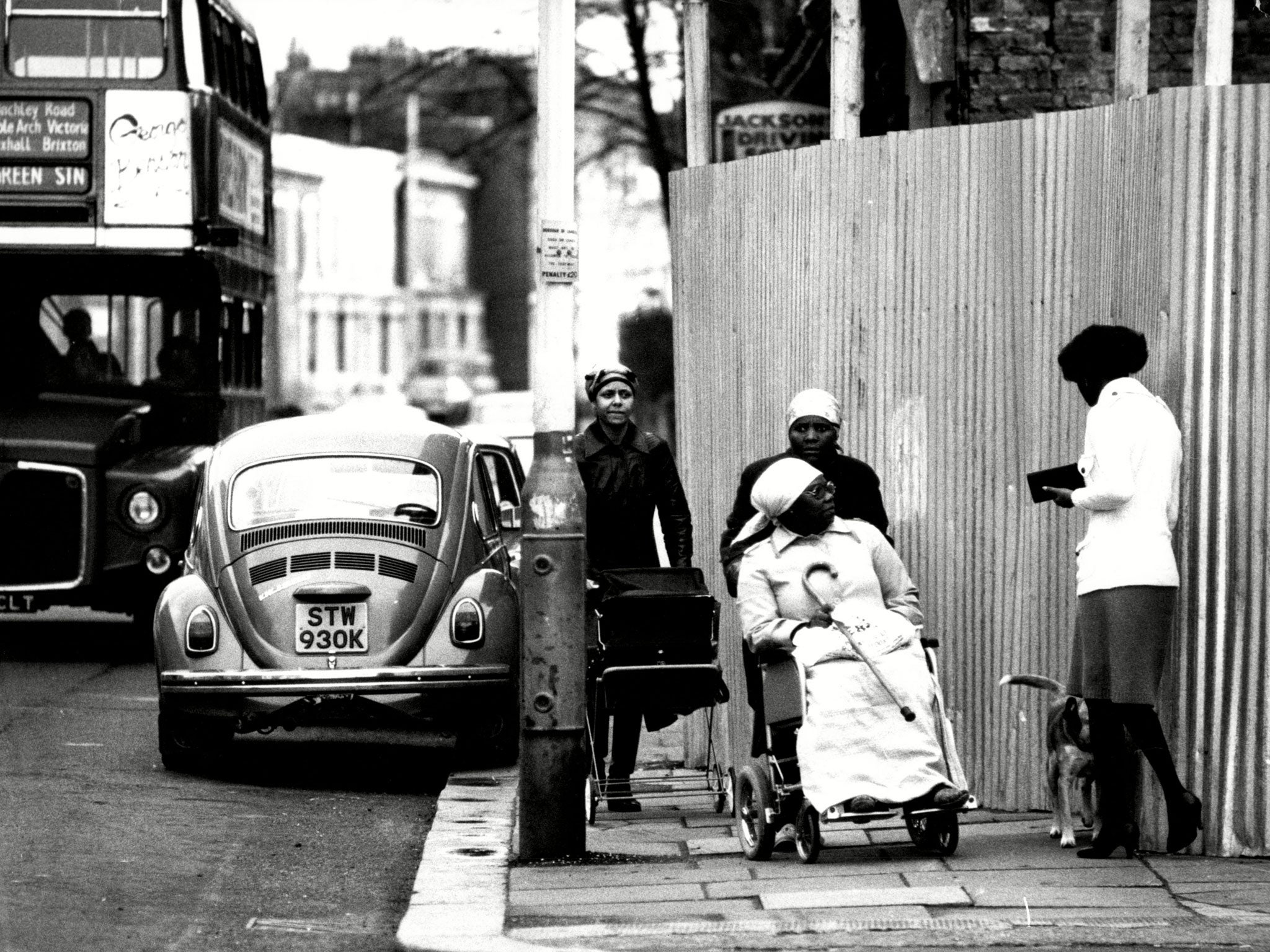
If a teenage Lesley Marshall or a very young Clive Banton had suggested that in the future, a sushi bar, restaurants and an art gallery would open on the Frontline, you'd be branded crazier than the end-of-the-world ranters who would regularly appear outside Brixton tube station (sometimes they still do). For those who were in the unfortunate predicament of trying to sell a terraced property in central Brixton immediately after the 1981 Brixton riots, they hardly received more for it than they would for a second-hand Ford Cortina.
"I remember the Brixton Uprising well," Lesley says. "On the Saturday morning [10 April, 1981] I was at a hairdresser's in Battersea. My bus refused to go further than Clapham. When I approached Brixton I couldn't believe what I saw. When I arrived home I saw my father standing outside our home. He was on a one-man patrol. He was worried that rioters might torch or firebomb our property. The next morning I walked down the Frontline in stunned silence – it was like bombs had flattened the whole area. Cordite was in the air, buildings were still smouldering. Alarm bells rang out everywhere. There was an occupation of police as far as the eye could see." More than 30 years later, anybody earning less than £30,000 a year might as well forget about applying for a mortgage in central Brixton.
The local council, desperate to attract any kind of income in the never-ending onslaught of deep government cuts, is leasing sites to property developers who build apartment blocks that are only affordable to the middle class. Those who were born, schooled and earned their first pay cheque in the area cannot afford a slate over their head in the same postcode. There are no local pardner initiatives or self-help housing associations to assist them.
Ethosheia Hylton, a 32-year-old filmmaker, has lived in and around Brixton since she was a toddler. Since she left education at 18 she has been in constant employment, including a long stint at British Airways as a flight attendant. She dreams of owning her own property one day but despairs whenever she sees a billboard in her area advertising "new luxury one- and two-bedroom apartments soon available".
"They're unaffordable for me,' Ethosheia says. "They're usually asking for £25,000 deposit. Where am I going to get that from? They're not building flats for people who have incomes or salaries like me – it's so frustrating. I live with my mother and once I pay out my living expenses at the end of the month, there is very little to save for any kind of deposit."
I ask Ethosheia if she has considered moving away from London to enable her to plant her toes on the housing ladder. "All of my family live in south London," she replies. "A few of my friends have moved to places like Essex. Now they say they feel isolated. Why should I be forced out of an area that I love and where all my support networks are? I'm fortunate that I have a great relationship with my mum and that we can co-exist without too much tension but I'd love to live in a space of my own design and establish my own identity. I'm 32 now and I need that. Sometimes, I think living at home reduces me to a teenage girl again."
Ethosheia has helped many of her friends move out of their family homes, only for them to return when soaring rents proved too much.
"I'm always looking around for a room to rent locally," she continues. "But I cannot find anything cheaper than £500 per month. With all my other outgoings it's just not affordable. If I make that move I fear I might be trapped paying rent forever. I look into the future and it scares me that I may never own a home." Many young people on the council housing list are being offered accommodation as far afield as Milton Keynes and Folkestone. If they accept the offer it'll prise them away from the support network of family and friends that young people need to build a secure family life.
Schools here have been bulldozed to make way for gated communities. Austerity is a word that landlords cannot even spell as they raise rents whenever they contemplate building a villa in Barbados.
This unchecked capitalism has wounded small businesses in Brixton. One of my favourite hangouts was the Index Bookstore located in Electric Avenue. Its profit margins were minimal but just sufficient to employ two well-informed assistants who were passionate enough to host reading events and launch local writers' books. (I was the happy benefactor with my debut novel Brixton Rock and my follow-up East of Acre Lane). They were forced to close because of steepling rents and rates. The bookshop has been replaced by yet another fishmonger (Brixton doesn't need any more fish!). Consequently, Brixton is losing its identity. It will slowly resemble any other town centre, high street or shopping arcade where the name brand retailers are king.
Many of the Windrush generation who arrived here after the conclusion of the Second World War have returned to their reward in the Caribbean, taking their hard-earned wealth with them. While they swat mosquitoes and sip coconut juice on their verandas, I'm sure they spare concerned thoughts for their grandchildren and great- grandchildren.
"We missed an opportunity," Lesley says. "Our community could've been property-rich in Brixton if we had followed the lessons of our parents. We took our eye off the ball and failed to capitalise on our legacy. It's ridiculous that we hardly own any of the shops and stores that sell West Indian food. And don't even get me started on our hair products!"
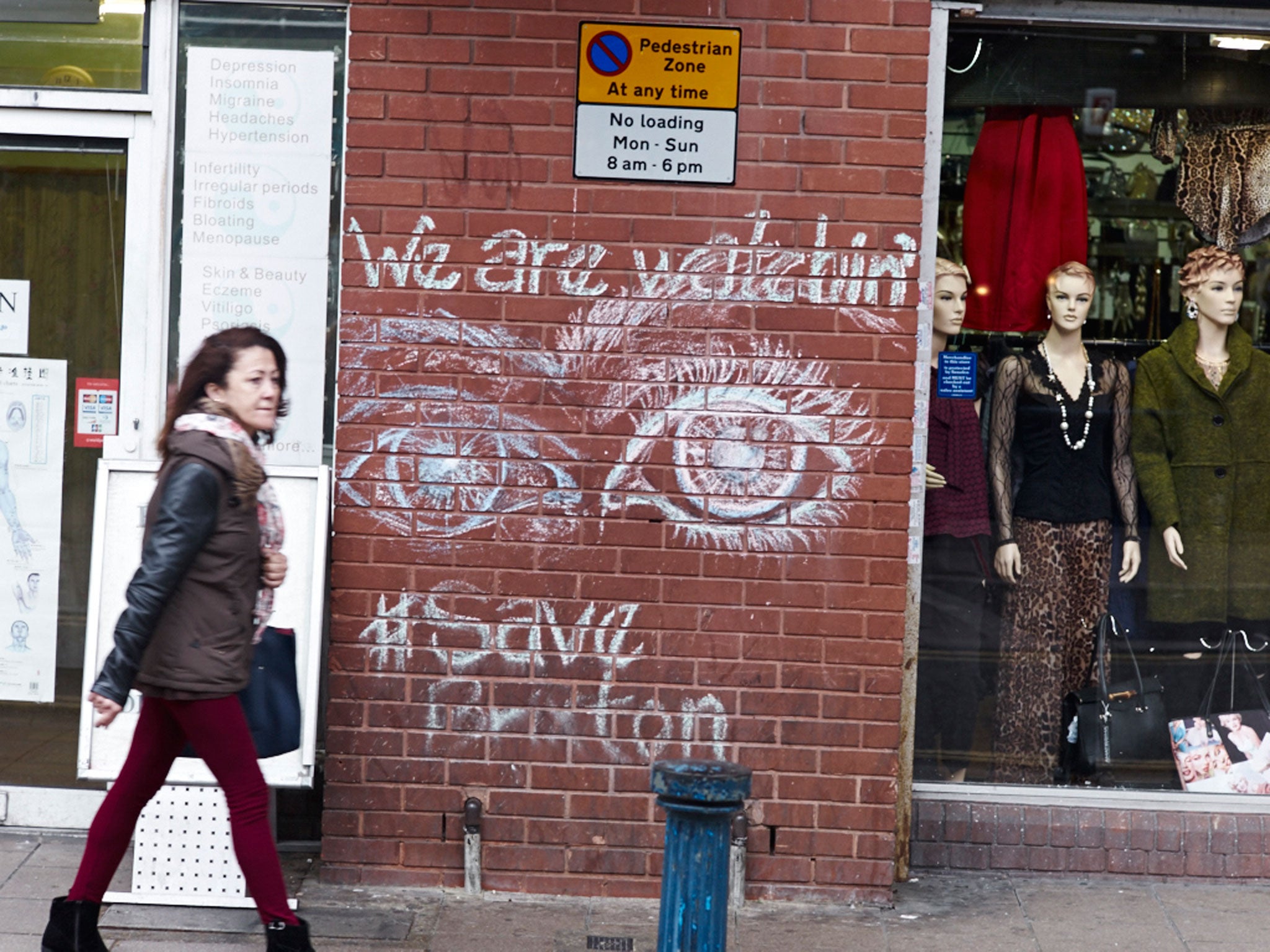
Lesley gained a degree in culture studies. When she moved from her family home she bought a flat in nearby Streatham. When she started to raise a family she purchased a property in Croydon. "I couldn't afford a house in Brixton," she says. "I guess children who were raised in Chelsea can't manage to pay for a mortgage there either – they're being pushed out by Russian oligarchs. I do miss Brixton though – especially the West Indian food on my doorstep."
I for one, refuse to blame the affluent new arrivals in Brixton – they see this corner of south London as an attractive place to live, close to central London with good public transport networks and a thriving Brixton Village where they can relax in a high-quality restaurant following a hard day's shopping and browsing in the market.
In my opinion the culpability should bruise the feet of politicians of all shades. Since Margaret Thatcher gave the right to council house dwellers to buy their own property, our dear leaders have utterly failed to build or provide more council housing stock. Even in the boom days of Tony Blair's three election wins, no one seemed to say, "Wait a minute, where are the young working class in our inner cities going to live?"
To arrest this housing injustice, Ethosheia suggests, "they should immediately introduce a rent cap [this is nothing new, it actually works in many big cities in Europe] and force the property developers, who have those big juicy construction contracts granted to them by local councils, to build a much bigger percentage of new homes that are affordable for the working class. Once you take ravenousness out of the housing crisis equation, it's not rocket science to try and seek a solution."
Now a carpenter, Clive says, "I'm worried about my children's generation. They have to fix up and be as focused and determined as my parents. It all starts with strong family and strong communities."
I'm often asked if I think they'll be another "uprising" in Brixton similar to what occurred in 1981. People might well take to the streets over the housing crisis, but I don't think the agitators, rebels and anarchists will have a Brixton address.
Join our commenting forum
Join thought-provoking conversations, follow other Independent readers and see their replies
Comments
Bookmark popover
Removed from bookmarks